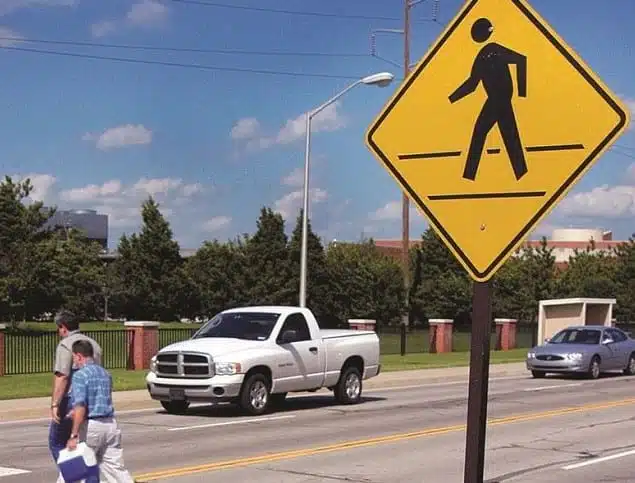
What Is a Failure to Yield Violation in Ohio?
Ohio state laws make it fairly easy for drivers to receive failure to yield tickets. At least six statutes cover the alleged traffic violation. Fortunately, effective defenses exist to spare an improperly charged driver the costs of an Ohio failure to yield ticket.
Traffic Laws That Define Failure to Yield
Section 4511.43 of the Ohio Revised Code, which is titled “Right-of-way rule at through highways, stop signs, yield signs,” sets out the clearest definition of what constitutes a failure to yield. Specifically, the statute requires drivers to “yield the right-of-way to any vehicle in the intersection or approaching on another roadway so closely as to constitute an immediate hazard during the time the driver is moving across or within the intersection or junction of roadways.”
In other, words: Wait for a large break in traffic before entering an intersection. Give yourself enough time and space to avoid a crash. Actually causing a crash is not required to earn a ticket, and the responsibility to check for and yield to oncoming traffic falls completely on the driver regardless of traffic conditions.
Related statutes address specific scenarios in which drivers must yield, such as obeying traffic signs and signals, encountering pedestrians, turning left, entering a highway, pulling out of a driveway or parking lot, and approaching a four-way stop or unmarked intersection at the same time as another driver.
Ticketable offenses under this group of state laws include:
- Failing to stop at a stop sign or red light;
- Failing to slow down and prepare to stop at yield sign;
- Failing to slow down or stop for pedestrians in crosswalks, at intersections, or at the entrances to parking lots, alleys, and driveways;
- Failing to give right of way to the driver on your right when stopped at a four-way stop or unmarked intersection; and
- Ignoring a police officer or flagger’s signal to stop.
Failure to Yield Is a Misdemeanor
Regardless of a why the ticket is issued, a standalone, first-time failure to yield offense is treated as a minor misdemeanor. This means the maximum statutory penalty is a $150 fine plus court and administrative fees. The Ohio Bureau of Motor Vehicles also assesses two penalty points. The BMV will keep the points on a driver’s record for two years, and any driver who accumulates 12 points during a 24 month period will have his or her license automatically suspended for 6 months.
Receiving a failure to yield ticket in addition to being cited for other traffic violations or while having convictions for other traffic violations within the previous 12 months puts a driver at risk for serving a 30-day or 60-day jail sentence. Fines also increase for second and third failure to yield offense convictions during the same year.
A final concern is that a police officer or state trooper can issue a separate charge for distracted driving when writing a ticket for failure to yield. Officials most commonly do this when accusing a driver of failing to obey a traffic sign or signal. Taking one’s eyes and mind off the road to text, talk on a phone, or reach for something inside the vehicle can make it easy to miss a red light or stop sign. The penalty for distracted driving is typically $100.
Fighting a Failure to Yield Ticket
Each case will be different, but it is possible to present evidence that law enforcement officers erred when issuing a failure to yield ticket in Columbus Ohio. Typical defenses include malfunctioning stop lights; removed, damaged, or obscured signs; errors by other drivers; and needing to make way for emergency vehicles.
If you need help fighting a failure to yield ticket, consider reaching out to Colin Maher of The Maher Law Firm. He handles traffic defense cases throughout Franklin County. To speak to a Columbus traffic defense attorney now, call (614) 205-2208 or connect with Colin online.
RECENT POSTS
-
What is Improperly Handling Firearms in a Motor Vehicle in Ohio?
07 Mar 2025
-
What is the Difference Between OVI and DUI in Ohio?
05 Mar 2025
-
What Happens When You File a Police Report on Someone For Harassment
11 Dec 2024
-
How to Move for Dismissal for OVI in Ohio
28 Oct 2024
-
Ohio Fraud Laws: Fraud Charges and Their Penalties in Ohio
12 Sep 2024
-
Can Dismissed OVI Be Expunged in Ohio?
02 Sep 2024
BLOG CATEGORIES
-
Traffic
126 Posts
-
Weapons
3 Posts
-
Drugs
22 Posts
-
DUI
195 Posts
-
Current Events
1 Posts
-
Expungements
2 Posts
-
News
18 Posts
-
Criminal Defense
45 Posts


